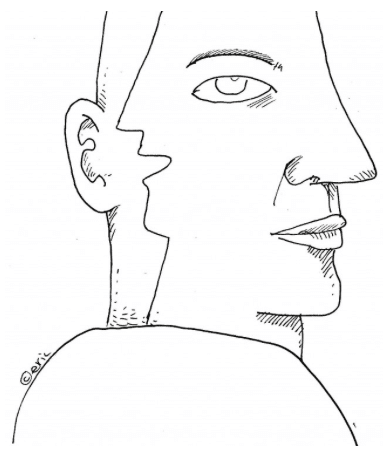
Nice piece in The Atlantic today, The Running Conversation in Your Head.
“Language is the hallmark of humanity—it allows us to form deep relationships and complex societies. But we also use it when we’re all alone; it shapes even our silent relationships with ourselves. In his book, The Voices Within, Charles Fernyhough gives a historical overview of “inner speech”—the more scientific term for “talking to yourself in your head.”
This was interesting:
Beck: People are not very good generally at reporting the specifics of what’s going on in their minds, right?
Fernyhough: When we use descriptive experience sampling [in which people are asked to report on their own inner speech] , we assume that a lot of what people say when they are asked about their experience is kind of generalizations about what they think is in their own minds rather than what is actually in their own minds. And that’s why people can be surprised by DES. People can think their thoughts are a bit negative but they turn out to be quite joyful, or vice versa. And that is a really fascinating philosophical question, because it suggests we can be mistaken about our own experience. And if we can be wrong about what goes on in our heads, then that’s pretty wild.
Beck: So people might have fundamental assumptions about their personality or their thought patterns and then find out they’re not true?
Fernyhough: Yeah, exactly, and it even could apply to certain aspects of mental health. Russ Hurlburt, [who created DES], has an example of somebody with OCD in one of his papers, where he talks about this character who complained of having constant intrusive obsessive thoughts, but when he did DES, he found there wasn’t nearly so much of that.
From that link on Descriptive Experience Sampling (open access here):
Descriptive Experience Sampling (DES) is a method for exploring inner experience. DES subjects carry a random beeper in natural environments; when the beep sounds, they capture their inner experience, jot down notes about it, and report it to an investigator in a subsequent expositional interview. DES is a fundamentally idiographic method, describing faithfully the pristine inner experiences of persons.
As far as I can tell (with a rather quick check of the literature) DES has not been applied specifically to the study of the experience of pain.
I think this would make for a fascinating phenomenological study of pain, there might be clinical and therapeutic applications too – a smartphone, with random alarm and note taking apps becomes a powerful first-person data gathering tool. Opportunity beckons.
-Tim Cocks
THE 2017 NOI CALENDAR IS SHAPING UP, HERE ARE THE CONFIRMED DATES
Melbourne 31 March – 2 April EP and GMI
Adelaide 26-28 May EP and GMI
Darwin 4 – 6 August EP and GMI
Brisbane 25 – 27 August EP and GMI
Newcastle 8-10 September EP and GMI
Details and dates coming soon for Wollongong and Sydney
Check out our courses page for details and to enquire
DAVID BUTLER IS HEADING TO THE UK AND EUROPE IN 2017
Eemnes, Netherlands – Explain Pain and Graded Motor Imagery April 22-24
York, England – Explain Pain April 26-27
Check out our courses page to make an enquiry
HAVE YOU DOWNLOADED OUR NEW PROTECTOMETER APP YET?

Just search the App Store from your iPad for ‘Protectometer’

Yes and no Tim….. as a chronic pain sufferer I manage very well but I am fortunate enough to have a healthy DIM SIM balance. However if I stop to think and scan my body I find that all my painfull friends are present and accounted for leading to a period of heightened discomfort……..